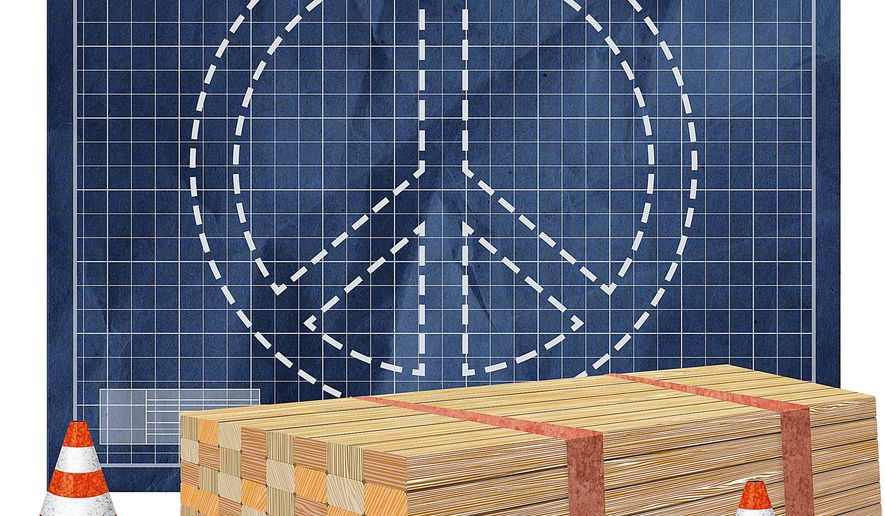OPINION:
The first pundit responses to President Donald Trump’s agreement with Kim Jong-un for the denuclearization of North Korea have leaned heavily on a series of inept comparisons with President Obama’s nuclear deal with Iran. The differences are as stark as they are important.
The “Iran deal” is properly known as the “Joint Comprehensive Plan of Action” (JCPOA), and therein lies the root of its failure. There is no such thing as a “comprehensive plan.” It is hubris to think you can cover all the bases in one working document — especially a document with different texts in Farsi and in English.
For example, the inspection regime in the JCPOA was key. How else would the P5+1 know if Iran was cheating? During talks, Iran said its military facilities would be off-limits to inspectors. Negotiators “finessed” the terms to avoid a breakdown in negotiations, and few military sites have been inspected. As we now know from the treasure trove of material the Israeli government commandeered, Iran proceeded to turn more than 90 percent of its nuclear program over to the military.
Deals in which the details have already been “agreed” are hard to reopen when the inevitable difficulties arise. It’s one thing if the deal is between friends, or even neutral parties; mistakes or omissions can be corrected. But what happens when you are negotiating with a country whose leadership declared war on you and has spent 40 years working to undermine you and your friends?
America’s P5+1 partners, and several Senate Democrats, acknowledged that the sunset clause (allowing Iran to proceed on its nuclear quest legally after a period of time) and the absence of rules on ballistic missiles were a mistake — after sanctions had been lifted and billions in cash handed to the Iranian regime. Mr. Trump gave the Europeans months to convince the Iranian leadership to make changes. They failed abjectly because Iran, reasonably enough, claimed once the deal was done it was done.
Now on to Korea.
Presidents Clinton, Bush 43, and Obama all took the bottom-up approach on North Korea. Deals were negotiated by subordinates and announced from above. The public position of each president was that our payments to the regime would be reciprocated by the North meeting its commitments. But when Pyongyang did, in fact, cheat, there was no recourse because the deal was done and the payment made.
The Trump position, a CEO position, is precisely the opposite. Rather than hoping his subordinates covered everything possible, the president set the goal with Mr. Kim and will now have his people work out the details.
The details and the steps to success will be the job of nuclear professionals plus the president’s national security people. The Pentagon, the State Department, the National Security Council and a variety of organizations within them have to come back to Mr. Trump with results. If the results aren’t acceptable, they’ll have to do something else.
This procedure makes more sense.
Without in the least suggesting that Mr. Trump is Franklin Delano Roosevelt, it should be noted that FDR told Gen. Dwight Eisenhower to bring him the unconditional surrender of Nazi Germany — he didn’t tell him when to cross the Channel.
Every step was done and the next step started, or several steps started at once. Winston Churchill was skeptical about starting in North Africa, but FDR was convinced that the American military wasn’t ready to be fighting in Europe. He was, of course, right — lots of shortcomings were discovered in those battles. [Disclaimer: My father was there, he could tell you about shortcomings in the U.S. Army of 1942.]
And what if (God forbid) D-Day had failed? Would we have called off the war? Tried to negotiate with Hitler — who could reasonably, at that point, have concluded that the war was going his way? No, the Allied generals would have found another way to give the commander in chief what he wanted.
Like Ulysses S. Grant after the Battle of Cold Harbor. After 18,000 casualties, Gen. Grant was sitting in his tent pondering, the story goes, and he told his aide, “Tomorrow, we’ll have to do something different.”
It is entirely unclear whether this process will end in the denuclearization of the Korean Peninsula. But it may prove far better at figuring out the pitfalls as they are about to happen while we still have a chance to change our strategy and before they’re paid for. All the U.S. has done for North Korea thus far is agree to suspend a war game with the South — which pleases many in the South as well.
As Mr. Trump tartly responded to a journalist’s question about whether the Korea deal will be tougher than the Iran deal, “I don’t think a deal could be softer [than the Iran deal], and we’re not paying $150 billion.
• Shoshana Bryen is senior director of the Washington-based Jewish Policy Center.




Please read our comment policy before commenting.